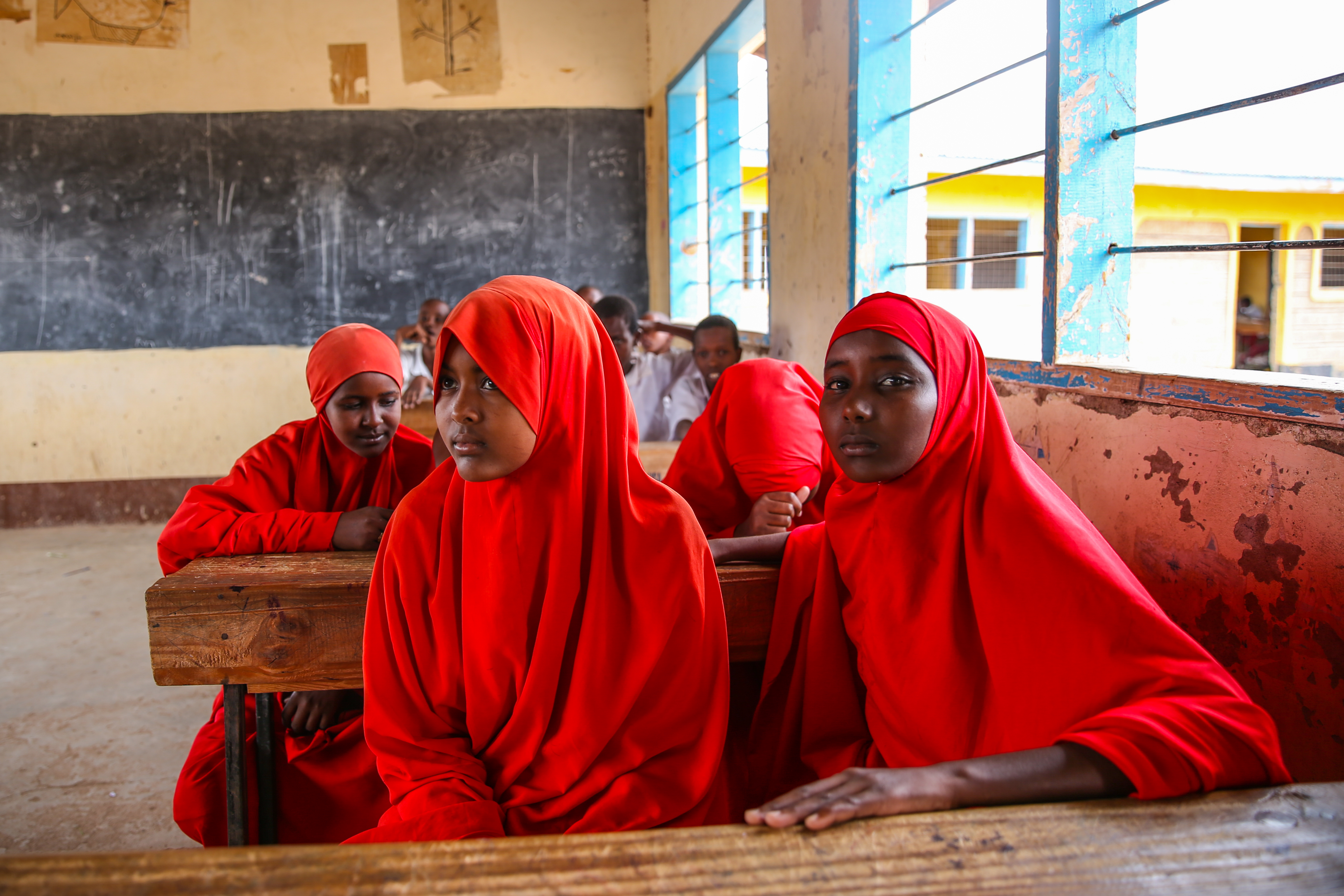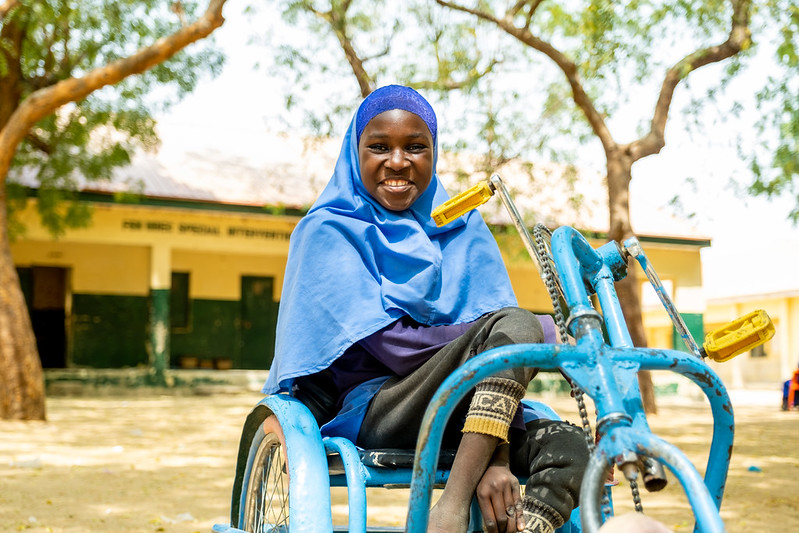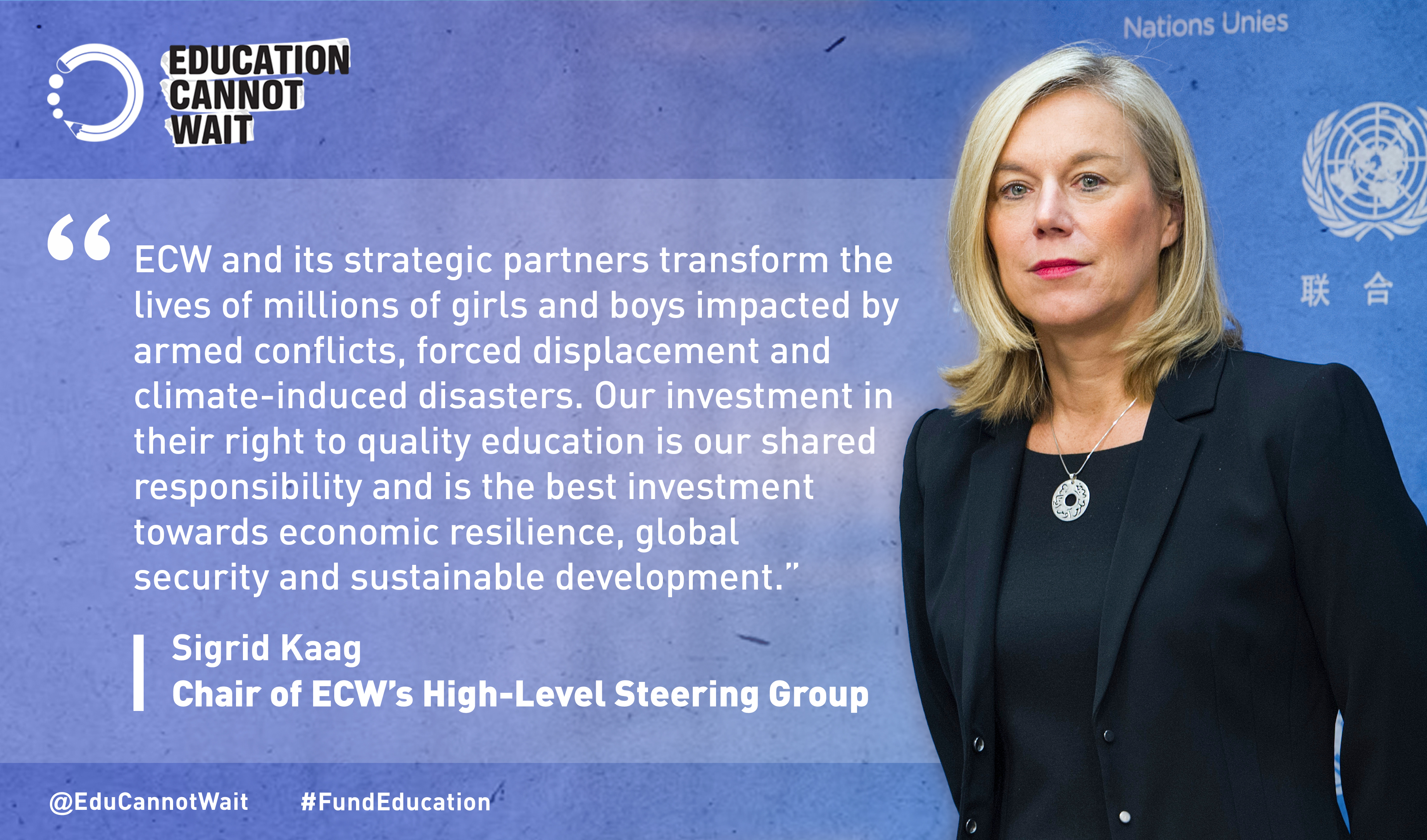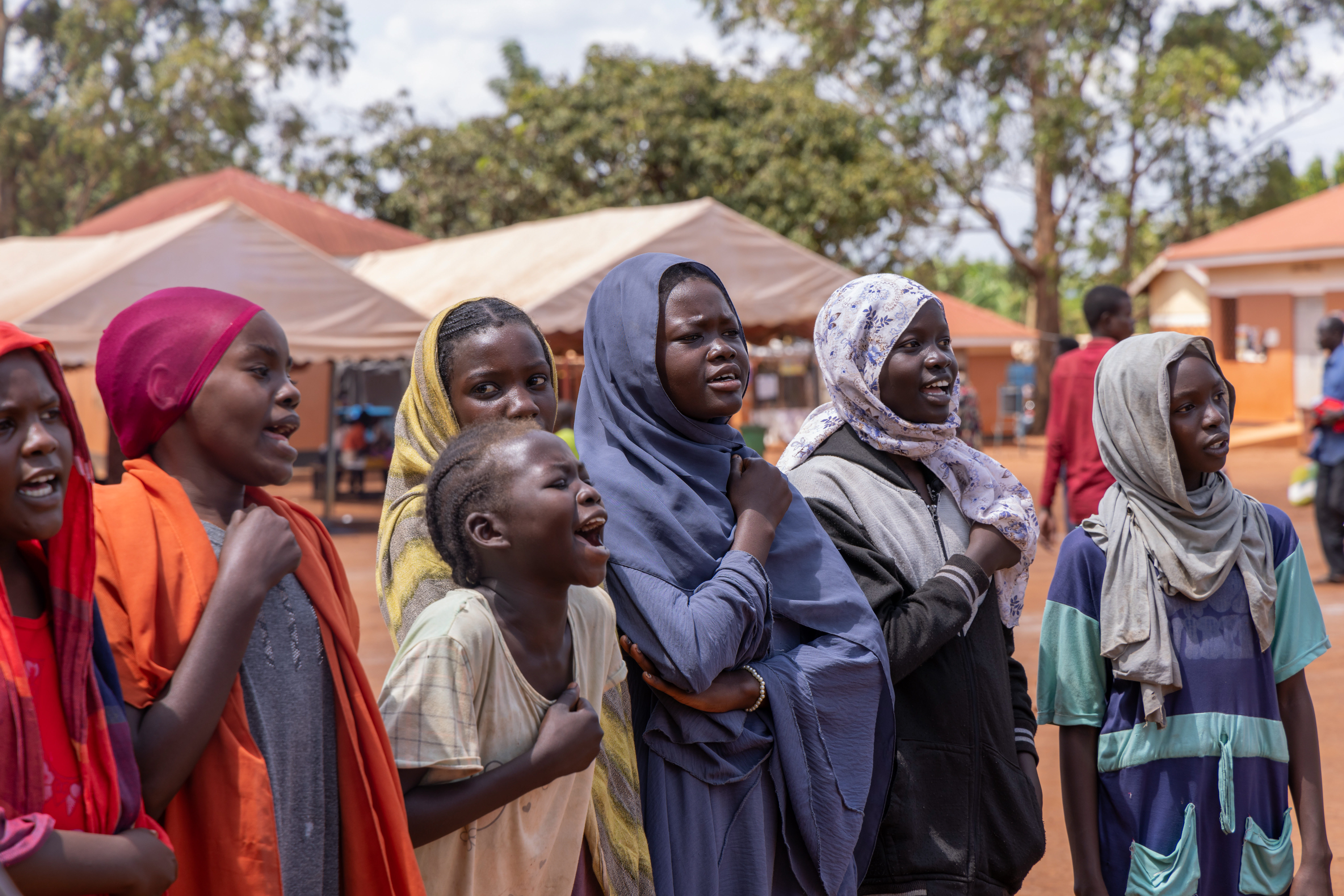Kenya Drought and Climate Crisis Response: Education Cannot Wait Announces US$2 Million Grant

Worst drought in 40 years puts millions of children at risk. Delivered by UNICEF and UNHCR, First Emergency Response Grant will reach 39,000 girls and boys in need of urgent support.
The worst drought in 40 years is putting millions of children at risk in Kenya. To respond to the crisis, Education Cannot Wait (ECW) announced today a new US$2 million First Emergency Response grant.
The 12-month grant will be delivered by UNICEF and UNHCR, the UN Refugee Agency, and will provide access to safe water in schools, ensure child protection, get children back to learning with supplies, back-to-school campaigns and supports for teachers, and strengthen the overall coordination for the education in emergencies response in Kenya. The fast-acting programme will reach a total of 39,000 crisis-impacted girls and boys.
“The climate crisis is impacting the education of 40 million children every year. In Kenya and across the Horn of Africa we must connect education action with climate action to keep girls and boys in school and respond to the devastating impacts of the climate crisis. By investing in the education of children in Kenya today, we are investing in sustainable economic and social development, climate resilience, and a better future for generations to come,” said Yasmine Sherif, Director of Education Cannot Wait, the United Nations global fund for education in emergencies and protracted crises.
At least 4.35 million people in Kenya are in need of humanitarian support as a result of the longest drought in 40 years. In all about 1.5 million school-aged children are at risk of dropping out of school. This adds to the 1.9 million children already out of school in the Arid and Semi-Arid (ASAL) parts of the country.
“Drought is a major threat to the development efforts and gains made in the education sector particularly in the ASAL region. To alleviate the negative impact of drought on children’s learning and the education system, short and medium-term support from the Government and all development and humanitarian partners is key to address the needs of children impacted by the drought and to safeguard the gains made at the ASAL region. We need to act now. Otherwise, the damage to children’s wellbeing and learning may be much more expensive to fix and/or irreversible,” said Anselme Motcho, Officer In Charge UNICEF Representative to Kenya.
Lack of safe water is a key challenge, especially in drought-hit areas. As many as 460 schools have no water source, and over 1,800 rely on harvesting rainwater. When children drop out of school, they face hunger, early marriage, forced labor, recruitment into criminal and armed groups and other attacks on their humanity. Refugees, girls and children with disabilities are disproportionately impacted by the climate crisis.
The educational and humanitarian needs in Kenya – and across the Horn of Africa – far outstrip the resources currently being provided. Recent estimates indicate that Kenya alone requires a total of US$32.5 million to support its humanitarian education response.
“Almost half of all refugee children around the world are out of school. Refugees’ access to education and training opportunities continues to be unequal and unpredictable, especially for girls and learners with disabilities. More support is needed to improve access to education for refugees. This will enable us to provide learning materials and support more refugee children with access to quality education to help them build a brighter future,” said Caroline van Buren, UNHCR Representative to Kenya.
Globally, 222 million crisis-impacted children are in need of urgent educational support. ECW is calling on world leaders to provide US$1.5 billion in urgent resources for the Fund’s Strategic Plan, which will reach 20 million children and adolescents over the next four years. At the ECW High-Level Financing Conference, leaders will have a chance to turn commitments into actions and support ECW and its strategic partners in realizing 222 million dreams for an education.
Note to Editors
About Education Cannot Wait (ECW):
Education Cannot Wait (ECW) is the United Nations global fund for education in emergencies and protracted crises. We support quality education outcomes for refugee, internally displaced and other crisis-affected girls and boys, so no one is left behind. ECW works through the multilateral system to both increase the speed of responses in crises and connect immediate relief and longer-term interventions through multi-year programming. ECW works in close partnership with governments, public and private donors, UN agencies, civil society organizations, and other humanitarian and development aid actors to increase efficiencies and end siloed responses. ECW urgently appeals to public and private sector donors for expanded support to reach even more vulnerable children and youth. The Education Cannot Wait High-Level Financing Conference, co-hosted by ECW and Switzerland, and co-convened with Colombia, Germany, Niger, Norway and South Sudan, will take place February 16-17, 2023, in Geneva.
On Twitter, please follow: @EduCannotWait, @YasmineSherif1, @KentPage
Additional information available at: www.educationcannotwait.org
For press inquiries:
Anouk Desgroseilliers, adesgroseilliers@un-ecw.org, +1-917-640-6820
Kent Page, kpage@unicef.org, +1-917-302-1735
For other inquiries: info@un-ecw.org
For Press Inquiries:
Anouk Desgroseilliers:
adesgroseilliers@un-ecw.org
+1-917-640-6820
Kent Page:
kpage@unicef.org
+1-917-302-1735



